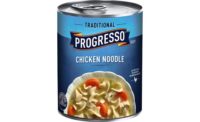Bemoan the Hormone
So, when a string of major customers, including supermarket giant Safeway, came to his co-op saying they would no longer accept milk from cows treated with a genetically engineered growth hormone, the co-op bowed to the inevitable.
In January, California Dairies' board voted to ask its members not to inject synthetic bovine growth hormone into their cows. If they do, their milk will have to be segregated and they'll pay a surcharge.
"Consumer demand is obvious," Cotta said.
The action by a co-op that ships 50 million pounds of milk every day is part of a sweeping, consumer-driven agricultural makeover, in which suppliers are forced to adapt to a changing marketplace. Demand for natural foods is rising, while increasing numbers of consumers are avoiding products that rely on antibiotics or growth hormones. And food retailers are listening.
Recombinant bovine somatotropin, or rbST, was approved by the Food and Drug Administration 14 years ago. Injected every two weeks into cows, it sustains lactation by stimulating cows' appetites so they eat more and produce more milk, perhaps an extra five quarts per day.
The hormone supplements the natural bovine somatotropin (bST), or bovine growth hormone, produced in a cow's pituitary gland. St. Louis' Monsanto Co., which developed the synthetic hormone known by the trade name Posilac, says the increased milk output translates to an average increase in net profit for dairies of $100 a year per cow.
The synthetic hormone may have been used in 20% to 30% of the nation's cows since it became available in January 1994, according to some estimates.
But what may be a significant value to dairies can't compete against the growing attractiveness of the natural foods movement.
"Many customers have called to ask us to eliminate the use of hormones," said Teena Massingill, a spokeswoman at Safeway, which is based in Pleasanton. "Our goal is to provide customers products they want," she said.
Safeway eliminated rbST in its Northern California milk brands, Lucerne and Dairy Glen, in 2004. Safeway stores in Washington, Montana, Idaho and Texas are also rbST-free, as are its Genuardi's stores in Pennsylvania.
Indeed, the vast majority of milk sold in Northern California is rbST-free, Cotta said. Southern California was slower to change but is catching up, he added.
Safeway's Vons stores in Southern California recently told California Dairies it wants milk it orders from the co-op to be rbST-free by August 1. Costco has made a similar order.
Starbucks spokeswoman Sanja Gould in Seattle said the company is already rbST-free in stores in Northern California, New England, New Mexico, Montana, Oregon, Washington, Idaho and Alaska. That represents 37% of its dairy volume. The company will be free of bovine growth hormone in other markets as supply becomes available, Gould said.
Two North Bay dairies, Straus Family Creamery, an organic producer, and Clover-Stornetta Farms, are rbST-free. So are Save Mart's brands, Sunnyside Farms and Bayview Milk.
Other notable national dairy-based companies that are rbST-free include Tillamook, a 150-dairy farmer cooperative in Oregon, and Ben & Jerry's Homemade Ice Cream in Vermont.
"We think its use is a step in the wrong direction toward a synthetic, chemically intensive, factory-produced food supply," Ben & Jerry's said in a statement.
For farmers, rbST can mean money in the bank. Dennis Areias, a third-generation dairyman who milks 282 cows at Den-K Holsteins on the outskirts of Los Banos (Merced County), figures it could add $30,000 or so to his net sales each year based on current prices.
Areias is one of three California Dairies board members who voted against discouraging rbST usage. In an interview in the pounding rain at his farm last week, he said he will continue to use Posilac.
Putting "rbST-free" on labels is a marketing ploy, he insisted. It creates a milk category between organic and regular that brings a higher price with no reward for the farmer, he complained.
Milk may be labeled as rbST-free in the United States provided that it's specified that federal tests have shown no significant difference between milk from cows treated with rbST and those that haven't been treated.
"The guy in the middle has figured out a marketing thing, where he can print something on a box about being rbST-free, cause a little concern or question, and he is going to generate more money in the marketplace," the 50-year-old dairyman said, his voice rising with indignation.
"This is an FDA-approved product and now they are telling us we can't use it and the ladies buying the milk are getting shafted every time they pay a penny more," Areias said. "Whether it's organic, rbST-free or regular, it's all exactly the same."
Some consumer groups, including Food & Water Watch in Washington, D.C., vehemently disagree, despite an FDA finding that milk from cows treated with the hormone is completely safe.
They note that, after extensive debate, the European Union, Japan, Canada and Australia did not approve rbST. The reasons included questions about human and animal safety, as well social and economic considerations.
Europeans worried about putting small farmers at a disadvantage, milk surpluses and the possibility of consumer backlash, according to a Canadian study.
Posilac has been approved in such countries as South Africa, Brazil, Colombia, Korea, Costa Rica, Egypt, United Arab Emirates, Honduras, Israel, Jamaica, Kenya and Mexico.
Patty Lovera, Food & Water Watch's food program director, pointed to research that shows injections of rbST increase another hormone, insulin-like growth factor 1, or IGF-1, in cows. Too much IGF-1 in humans is linked with increased rates of colon, breast and prostate cancer.
Food & Water Watch says synthetic hormone use also increases the rate of mastitis, a bacterial udder infection. That in turn leads to increased use of antibiotics, whose overuse is already a serious problem in the livestock industry.
Meanwhile, belief is spreading quickly that growth hormones induce puberty in humans earlier than normal, said Laurie Demeritt, a consumer marketing specialist at the Hartman Group in Bellevue, Wash.
She encountered the theory while doing a survey last year in which 61% of consumers said their main reason for buying organic foods was to avoid products that relied on antibiotics or growth hormones.
In other market research, the Natural Marketing Institute's 2006 Health & Wellness Trends Database found that 53% of primary grocery shoppers said they were looking for dairy, meat and poultry products that are free of antibiotics. The same number said they shop for products free of hormones.
Monsanto spokesman Andrew Burchett said the company does not believe there is a mass movement against hormones.
"We do not see a broad-based consumer demand for farmers to give up Posilac," Burchett said. "In the absence of deceptive labels and advertising, consumers consistently say buying milk is based on price, expiration date and fat content."
Regarding the early puberty theory, he said, "We have seen activists that oppose the technology allude to things that have no basis in fact."
Monsanto's product supplements the bovine somatotropin that is a naturally produced protein in the pituitary glands of cattle and helps adult cows produce milk. Many experts say the decreased use of Posilac simply reflects business decisions.
"From a public health standpoint, I am unaware of any hard-core science that shows a public health risk," said Dr. James Cullor, director of the UC Davis Veterinary Medicine Teaching and Research Center in Tulare.
"It's really kind of sad," added Michael Marsh, the CEO of Western United Dairymen, a trade association in Modesto. "It will lead to more smaller farms going out of business. Posilac is another tool the small farmer uses to compete with every larger agribiz."
Nevertheless, California Dairies has made its decision.
"It's no different than shopping for a car," said CEO Cotta. "If you want a red car and all they have is green, you go to the next lot."
From the March 26, 2007, Prepared Foods e-Flash
Looking for a reprint of this article?
From high-res PDFs to custom plaques, order your copy today!




